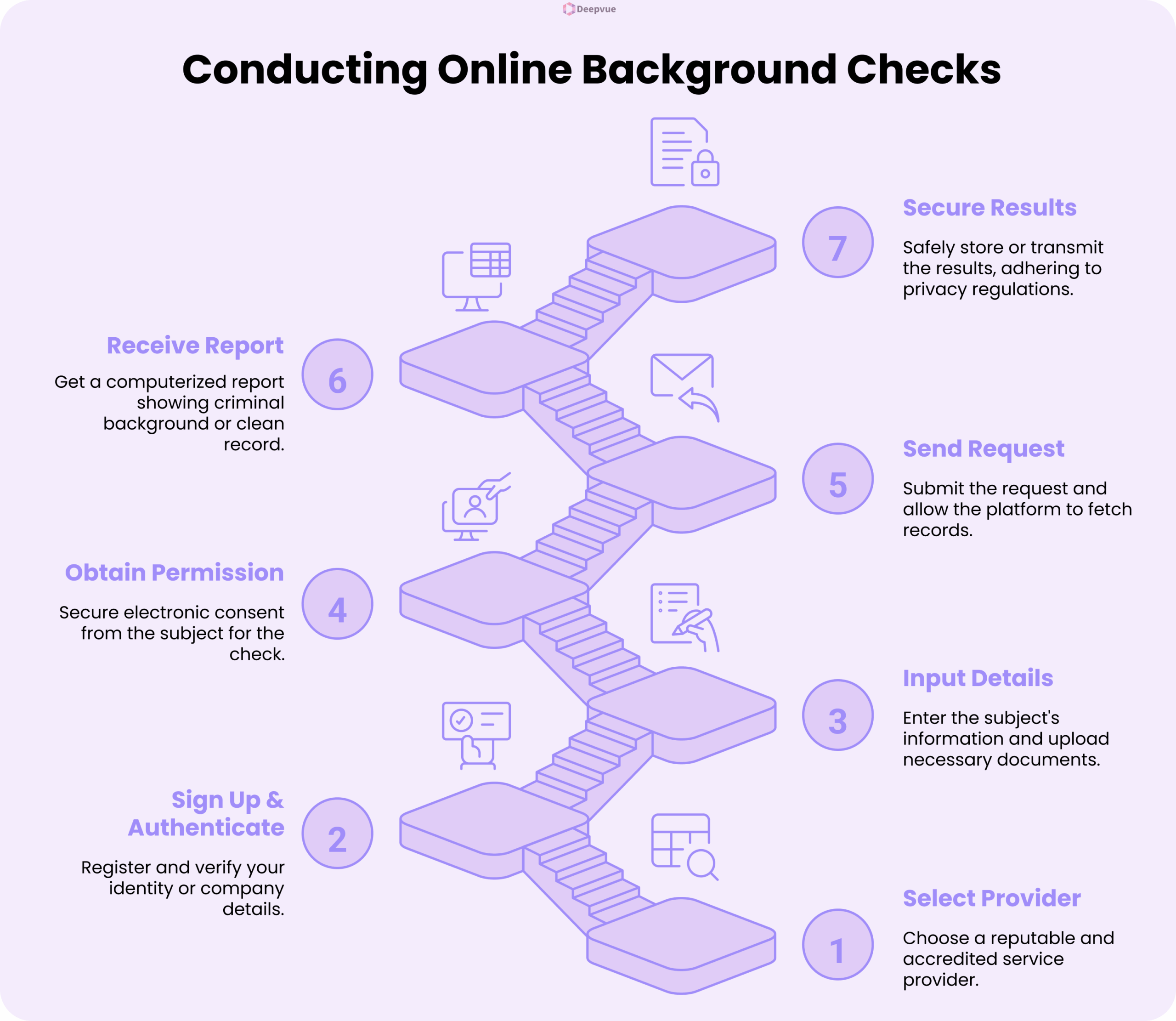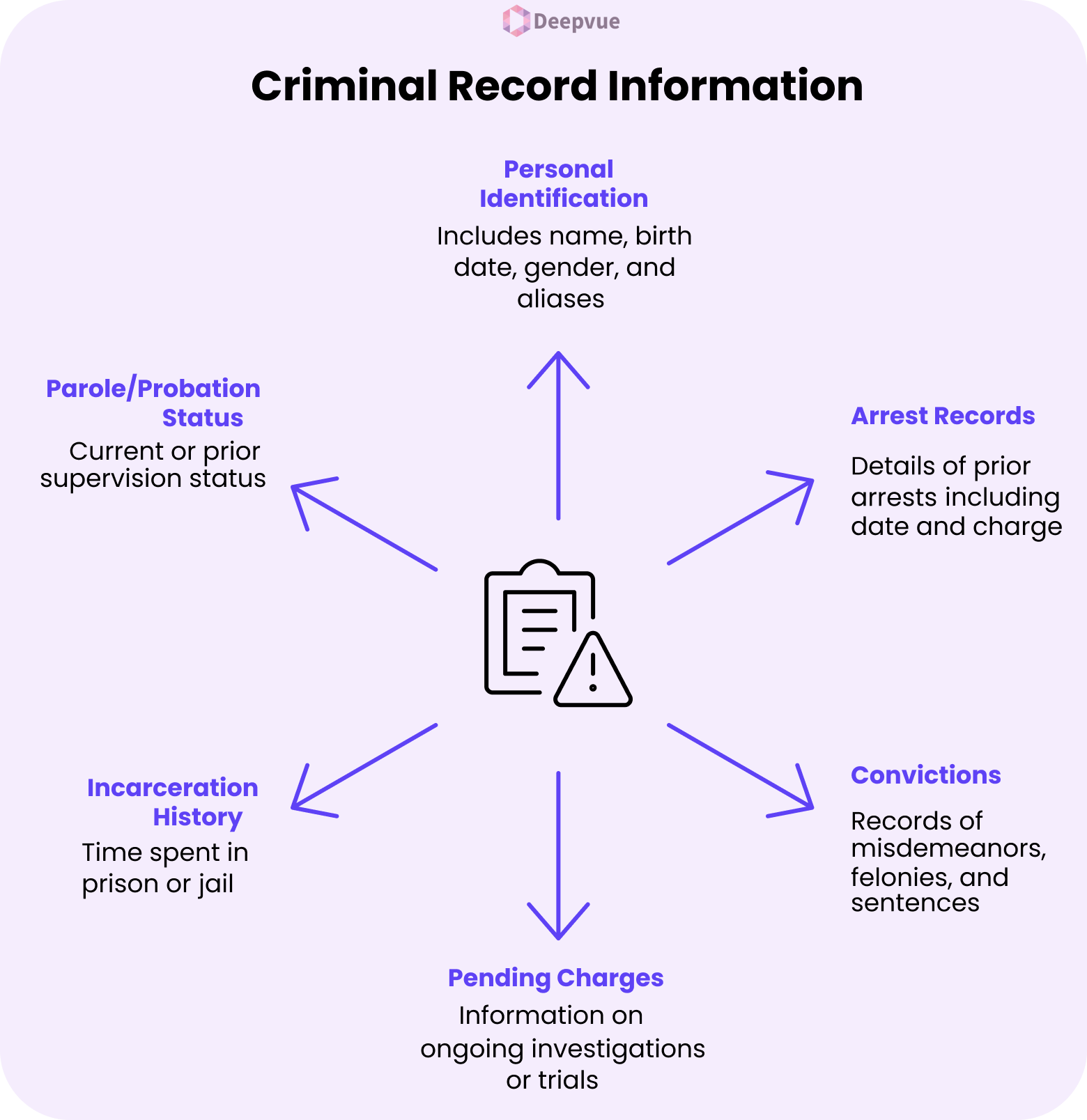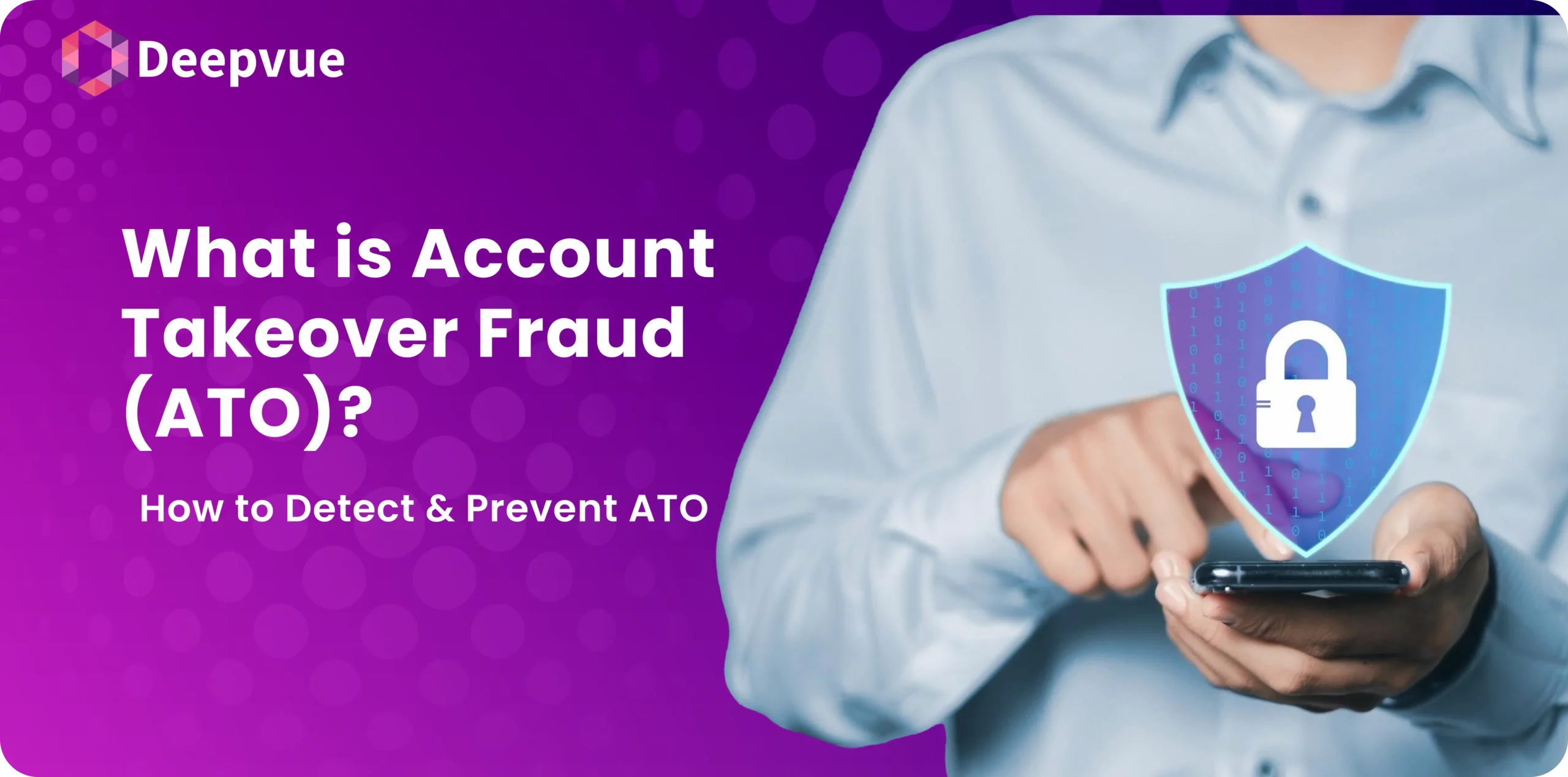Recruiting the right person or checking someone’s history is an essential step in establishing trust, whether you’re a business, landlord, or bank. Criminal record checks are an integral part of that process, allowing you to determine if someone has a past that will influence your choice. With the increasing use of digital services, doing so online has become quicker, easier, and sometimes more reliable than doing it manually.
This thorough guide will take you step-by-step through all you should know, ranging from the nature of online criminal background checks and what kinds of records they cover, to what background check firms do.
Understanding Criminal Record Checks
A criminal record check is a procedure that helps establish if an individual has a criminal record or not. It involves the verification of official databases maintained by law enforcement agencies to find out if there has been any prior arrest, charges, convictions, or other judicial offenses. It is done to determine the background of an individual for possible risks, particularly in high-trust or sensitive settings.
Importance in Employment and Security
- Employment Screening: Employers use criminal record checks online to ensure they are hiring trustworthy candidates, especially for roles involving finances, vulnerable populations, or confidential data.
- Workplace Safety: They help to reduce the risk of work violence, theft, or fraud by indicating a record of criminal behavior.
- Regulatory Compliance: Some industries (e.g., finance, health care, education) require background checks as a means of satisfying regulatory or licensing requirements.
- Trust and Integrity: Such vetting procedures instill public trust by ensuring that individuals in power have a clean and clear track record.
How to Check a Criminal Record Online?
Online platforms make it easier to conduct criminal background checks by offering secure, automated access to police or government databases. They avoid manual paperwork, offer faster turnaround times, and provide real-time status updates to both the requester and the applicant. Most platforms also include identity verification, consent management, and tamper-proof reporting features.
Step-by-Step Guide to Conducting Online Checks

Step 1: Select a reputable and accredited background check service provider.
Step 2: Sign up and authenticate your identity (for individuals) or company information (for businesses).
Step 3: Input the subject’s details and upload the necessary identity documents.
Step 4: Get the subject’s electronic permission to conduct the background check.
Step 5: Send the request and let the platform screen fetch records.
Step 6: Get a computerized report showing any criminal background or establishing a clean record.
Step 7: Keep or transmit the results safely, adhering to relevant law and privacy regulations.
Legal Framework and Compliance
Laws Governing Criminal Record Checks Online in India
- The Indian Penal Code (IPC) and Code of Criminal Procedure (CrPC) are used to access criminal records maintained by police departments and courts.
- Police Verification Rules, which vary by state, often apply when hiring for sensitive roles (e.g., domestic help, private security, or government positions).
- Information Technology Act, 2000, and principles of Data Protection control the cyber management of criminal and personal data.
- Private employers mostly use licensed third-party background check agencies, which are required to obey relevant privacy legislation and to secure the consent of the individual.
Consent and Privacy Rights
- Informed Consent: The person has to be completely aware of the purpose, extent, and probable outcomes of the check.
- Right to Privacy: In India, the Right to Privacy is a constitutional right (according to the Supreme Court’s 2017 ruling in Justice K.S. Puttaswamy v. Union of India), and background checks must be proportionate, necessary, and with consent.
- Data Minimization: Requisite and pertinent data alone must be gathered, held securely, and processed lawfully.
Types of Information in Criminal Records

- Personal Identification: Full name, birth date, gender, and in some cases, aliases.
- Arrest Records: Records of prior arrests, which may include date, charge, and arresting authority.
- Convictions: Record of misdemeanors, felonies, court verdicts, and sentences.
- Pending Charges: Those pending investigations or trials.
- Incarceration History: Time spent in prison or jail, including facility and length.
- Parole or Probation Status: Current or prior supervision status and associated conditions.
Impact on Employment Decisions
- Employers determine if the offense is job-related (e.g., theft and financial positions).
- Certain companies have zero-tolerance policies; others take into account rehabilitation and time passed.
- Some professions (e.g., finance, healthcare, childcare) are legally prohibited from employing individuals with certain convictions.
- Employers can consider the potential client or brand effect of hiring an individual with a criminal history.
Role of Background Check Companies
Background check companies help verify an individual’s criminal history from online databases and public records. Background check companies assist companies, landlords, and lenders in making informed decisions while employing, hiring, or lending. These services help ensure safety, reduce fraud risks, and are compliant with the law and regulations.
Choosing Reliable Service Providers
- Choose companies that follow the Fair Credit Reporting Act (FCRA) and local privacy laws.
- Look for suppliers that use open data sources and unambiguous screening procedures.
- See those that have live updates and detailed coverage in jurisdictions.
Evaluating Effectiveness and Efficiency
- Quantify how fast and accurately the provider produces verified criminal background reports.
- Assess the ease of integration into your systems or platforms (e.g., APIs, dashboards).
- Verify for false positives or stale data, which can affect trust and results.
- Think about automated notification or tracking options that alert you to upcoming criminal record updates.
Implications for Employers
- Making Informed Hiring Decisions: Online criminal record checks help employers assess a candidate’s background more accurately, allowing them to make better-informed hiring decisions. This minimizes the risk of negligent hiring and ensures the candidates meet company policy and legal requirements.
- Improving Workplace Safety: By testing for a history of criminal activity, employers can assist in providing a more secure workplace for employees, clients, and customers. It is especially important in jobs handling vulnerable groups, funds, or confidential information.
- Legal and Compliance Requirements: It is obligatory on the part of employers to follow applicable privacy and labor legislation in the process of conducting background checks. Utilizing authorized portals and seeking proper consent ensures that the process is ethical and lawful.
Conclusion
Criminal record checks online are an important aspect of protecting your organization, community, or personal interests. With more processes going online, these checks have become easier and more streamlined, providing quicker results without compromising accuracy or compliance. But knowing the various types of checks, legal limits, and best practices is essential to employing them efficiently and ethically.
This is where identity and background check APIs add tremendous value. Through using these APIs in your processes, you can automate ID verification and criminal record checks in a secure, scalable, and consistent process.
FAQ
How is a reference check different from a background check?
A reference check is where one speaks with the past employers or co-workers of an applicant to evaluate his/her character and work performance, whereas a background check confirms factual details such as criminal records, employment history, and identity.
What is a back-door reference check?
A back-door reference check refers to an instance where an employer calls somebody not mentioned as a reference, but usually an immediate past supervisor or colleague, in order to solicit informal comment regarding a candidate without the knowledge of the candidate.
Why is pre-employment screening for drug use important?
Drug testing ensures workplace safety, minimizes liability, and preserves productivity by weeding out candidates who are under the influence of drugs that affect judgment or performance.
In what ways can a civil check differ from a criminal records check?
A civil check seeks out non-criminal legal problems such as lawsuits, restraining orders, or contract disputes, whereas a criminal records check seeks out convictions, arrests, or charges for criminal offenses.








